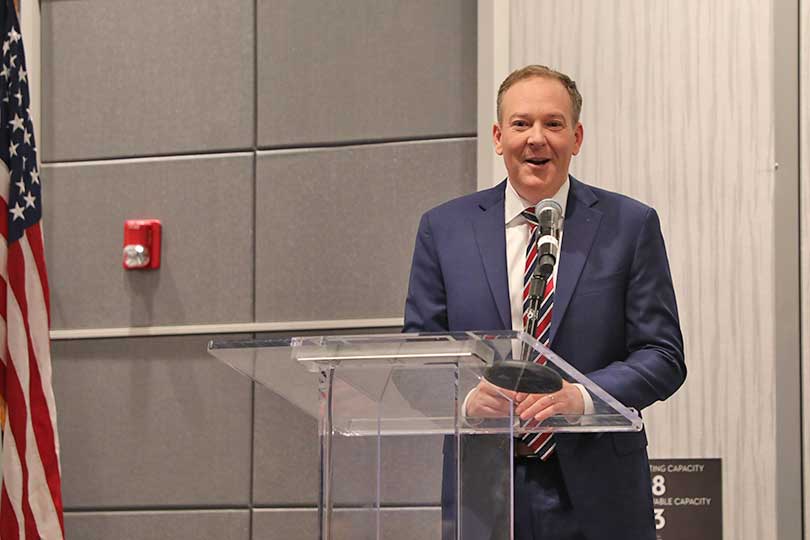By Jessica Domel
Multimedia Reporter
The Environmental Protection Agency (EPA) is working to protect the environment and grow the economy while still keeping the needs of U.S. agriculture in mind.
During a recent visit with more than 340 Texas Farm Bureau (TFB) members in Washington, D.C., EPA Administrator Lee Zeldin said EPA’s goal under the Trump administration is to address regulatory concerns and encouraged farmers and ranchers to share their ideas and feedback with the agency.
“There is nothing that you should keep to yourself. If you have a good idea on how the EPA could be doing a better job fighting for you, don’t hold anything back,” Zeldin said. “We’re not pacing ourselves. We’re just doing it all.”
One of the agency’s priorities is to fix the current patchwork of definitions of a Water of the U.S. (WOTUS).
Areas that are considered a WOTUS fall under federal jurisdiction under the Clean Water Act, meaning some every day actions, like plowing, could require additional permits for landowners.
In mid-March, Zeldin announced EPA will rewrite WOTUS so it follows the Supreme Court’s ruling in Sackett v. EPA.
“The Supreme Court issued a decision in Sackett with very clear and prescriptive language, and maybe, just maybe, we are at that point where we can come up with a definition for Waters of the U.S. that can withstand the test of time,” Zeldin said. “Maybe we are able to come up with a definition that no matter what happens in the next presidential election, the next EPA isn’t swinging a pendulum in a different direction.”
The goal, he said, is to ensure the entire nation operates under one definition of WOTUS.
Currently, half the country uses one definition while the other half uses another definition.
“We’ve reached the point in time where we can have a definition that all of you will know whether or not there’s a water of the U.S. on your property without having to go out and hire an attorney or a consultant to tell you whether or not it’s waters of the U.S.,” Zeldin said.
He also addressed the agency’s broader decision-making approach, noting that EPA will follow the science and avoid decisions that will strangle the economy, lack common sense and may have unintended consequences.
Zeldin said he has been on farms and has seen firsthand how farmers work to protect the land and the environment.
“I’ve spent some time on farms where you see how amazing innovation has been, especially over the course of recent years, where the application of what some will criticize is so targeted and the use of technology and the ability to make sure that you are applying these different chemicals exactly where you need to apply them as efficiently as possible, the precautions that are expertly taken to make sure that mitigation is maximized and that you all are able to do your job, to be able to feed America, that you’re able to power the engine of the U.S. economy,” Zeldin said.
EPA will also work to address a backlog of pesticide registrations.
“What we inherited at EPA was backlogs—with regard to new pesticides, 14,000 new chemicals,” Zeldin said. “We’re going through the decision-making process of doing a reorganization at the EPA. Decisions and announcements will be made shortly.”
Zeldin said some restructuring at EPA will help move things forward.
“The EPA’s Office of Chemicals, which handles everything to do with pesticides, said they can use scientists from the Office of Research and Development if they were moved to the Office of Chemical Safety and Pollution Prevention, and they will be able to drastically get down these backlogs,” Zeldin said.
Zeldin stressed the importance of resisting pressure to adopt popular positions that do not consider the impacts to agriculture, to farmers, the economy and jobs.
He encouraged farmers and ranchers to stay engaged and provide feedback on EPA’s actions.
“I want to be a great listener and get your feedback when we might come out with a strategy,” Zeldin said. “Provide feedback about how we could do something better. I want you all to have that open door at the EPA.”
Zeldin served as the keynote speaker during TFB’s National Affairs Trip the last week of April.


Leave A Comment